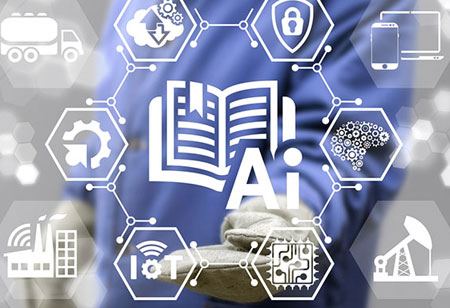THANK YOU FOR SUBSCRIBING
The Advancements of AI in Healthcare
Healthcare providers are using standardized data sources in AI algorithms to assist radiologists in detecting tumors and other anomalies quickly and accurately.

By
Apac CIOOutlook | Thursday, June 27, 2019
Stay ahead of the industry with exclusive feature stories on the top companies, expert insights and the latest news delivered straight to your inbox. Subscribe today.
Healthcare providers are using standardized data sources in AI algorithms to assist radiologists in detecting tumors and other anomalies quickly and accurately.
FREMONT, CA: It has been many years since artificial intelligence (AI) made its way into healthcare. However, its development has been slow in clinical areas when compared to the non-clinical sector. For instance, AI has witnessed more successful deployments in medicine development than in healthcare service.
AI has shown great potential in predicting patient deterioration. The recent advancements in AI have spurred healthcare providers and pharmaceutical organizations to deploy the technology and enhance their operations. The investments have yielded significant cost cuts and improved outcomes. Owing to the rise in AI adoptions, the U.S. Food and Drug Administration has introduced new regulatory frameworks for AI in healthcare. According to healthcare experts, the utilization of AI during patient care and patient data analysis has not witnessed much progress when compared to other sectors.
Check Out: Top Healthcare Technology Companies in APAC
AI algorithms have enabled organizations to perform sophisticated analytical functions. Machine learning (ML) technology is being used to detect anomalies by comparing medical images with a broader database. In the case of radiology, AI systems can screen hundreds and thousands of images in the same time frame a radiologist takes to assess tens of the same files.
The steady increase in demand has spurred new players to enter the market with their unique medical image analysis algorithms. The AI systems can assist the radiologists in detecting tumors and other anomalies quickly and accurately. Since the data sources used to train AI algorithms are standardized, the technology is more widely adopted in radiology.
EHR-embedded virtual assistants are being incorporated into healthcare services to assess patient health records and deliver relevant information to the user. Another emerging technology being leveraged in healthcare is chatbots. It utilizes natural language processing (NLP) to assist healthcare providers in answering patient queries.
A nascent AI technology is also in development, which is designed to predict health issues such as migraines, epilepsy, depression, and so on by evaluating the symptoms. The systems will utilize forecasting models to identify the patients most likely to commit suicide, thus enabling the healthcare providers to design relevant courses of treatment.
See Also:





